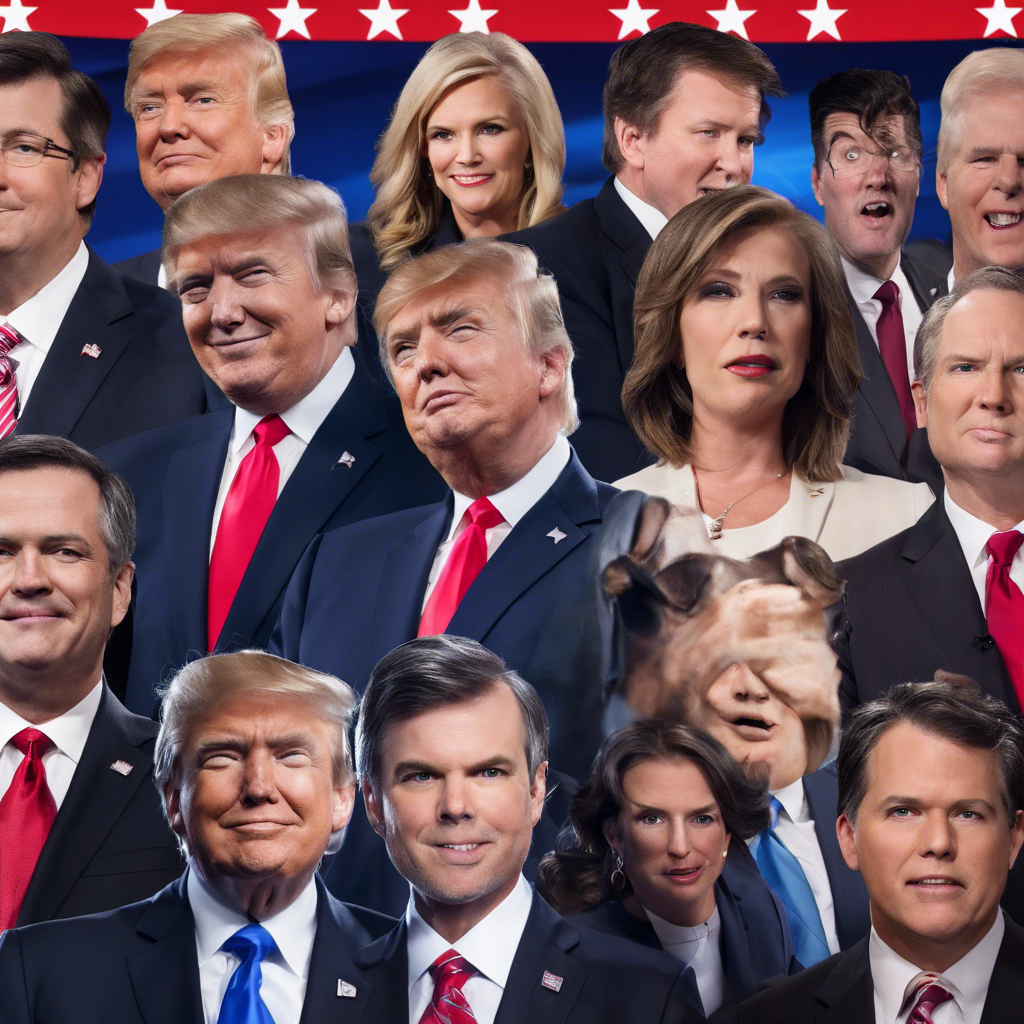Fourth Republican Debate: Candidates Spar in Alabama as Trump Dominates

Four candidates clash in the final Republican debate ahead of the Iowa caucuses, aiming to challenge former President Donald Trump’s frontrunner status.
The fourth Republican debate of the 2024 United States presidential election took place in Tuscaloosa, Alabama, just six weeks before the crucial Iowa caucuses. While former President Donald Trump, the clear frontrunner for the Republican nomination, once again skipped the debate, his presence loomed large as candidates vied to position themselves as viable alternatives. The event, hosted by the NewsNation channel, featured four candidates: Florida Governor Ron DeSantis, former UN envoy Nikki Haley, entrepreneur Vivek Ramaswamy, and former New Jersey Governor Chris Christie. As the candidates clashed on various issues, including foreign policy, immigration, and China, the debate offered valuable insights into the current state of the Republican Party.
Haley faces attacks:
Nikki Haley, who has seen a surge in her campaign after receiving the endorsement of the influential Koch network, found herself under attack from her rivals. DeSantis, considered Trump’s greatest challenger, questioned Haley’s conservative credentials and criticized her stance on transgender healthcare for children. The two candidates also traded accusations of being soft on China. Ramaswamy, a businessman and vocal critic of Haley, attacked her throughout the debate, portraying her as a corrupt neoconservative. Despite Christie’s defense of Haley, Ramaswamy persisted with his attacks, questioning her support for aid to Ukraine.
Trump gets heat from rivals:
While Trump’s absence was palpable, some candidates took the opportunity to criticize the former president. Haley, in particular, criticized government spending under the Trump administration and described him as an agent of chaos. DeSantis questioned Trump’s electability, suggesting that his age of 77 might be a limiting factor. He also argued that Trump did not fulfill his promises from the 2016 election. However, despite these criticisms, Trump continues to lead the race by a significant margin.
Support for Israel:
All the candidates expressed staunch support for Israel during its conflict in Gaza. Christie even stated that he would not hesitate to send US soldiers to rescue American captives if presented with a sound plan. DeSantis accused the Biden administration of limiting Israel’s war efforts, while Haley called for banning TikTok due to content critical of Israel. However, their positions raised concerns among Palestinian rights advocates who caution against conflating anti-Semitism with anti-Zionism.
Tough talk on the border, migration:
The candidates largely agreed on the need to address unauthorized border crossings. DeSantis proposed treating drug cartels at the southern US border as “foreign terrorist organizations” and dealing with them militarily. He also advocated for building a border wall and funding it through taxing remittances. Haley emphasized the need to ramp up deportations of migrants who entered the country without authorization during the Biden presidency. Ramaswamy promoted the controversial “great replacement theory,” alleging that Democrats aim to replace white voters through increased immigration.
China in the crosshairs:
China emerged as a focal point of the debate, with candidates proposing tough policies and accusing each other of being weak on Beijing. Ramaswamy blamed China for the fentanyl crisis and the COVID-19 pandemic, advocating for holding them accountable financially. DeSantis emphasized the need to deter China’s ambitions and make the 21st century an American century rather than a Chinese one.
Conclusion:
The fourth Republican debate showcased the efforts of candidates to challenge Trump’s dominance in the race for the Republican nomination. Haley faced attacks from her rivals, while Trump received criticism for his past actions and unfulfilled promises. The candidates’ positions on Israel, immigration, and China highlighted the divergent views within the Republican Party. As the Iowa caucuses draw nearer, it remains to be seen if any candidate can gain enough momentum to pose a significant challenge to Trump’s frontrunner status.

